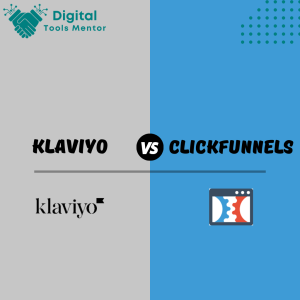Predictive Keyword Analysis with AI
In the ever-changing world of digital marketing, Search Engine Optimization (SEO) stands as a dynamic and constantly evolving field. The advent of new technologies and changing search engine algorithms continuously redefine the strategies and tools necessary for effective SEO. As we move further into 2024, the landscape of SEO is witnessing a significant transformation, particularly with the integration of Artificial Intelligence (AI) into its core processes.
One of the most notable advancements in this area is the emergence of predictive keyword analysis. This innovative approach goes beyond traditional keyword research methods, leveraging the power of AI to not only analyze current search trends but also to predict future ones. Predictive keyword analysis represents a shift from reactive to proactive SEO strategies, allowing marketers and SEO professionals to stay ahead of the curve by anticipating changes in user search behavior and preferences.
The role of AI in revolutionizing predictive keyword analysis cannot be overstated. AI technologies, including Machine Learning and Natural Language Processing, are at the forefront of this transformation. They enable a deeper, more nuanced understanding of search patterns and user intent. By analyzing vast amounts of data, AI can identify emerging trends, uncover hidden keyword opportunities, and provide insights that are not easily discernible through traditional methods.
This evolution in keyword analysis is crucial for anyone looking to optimize their online presence. It offers the potential to create more targeted, relevant, and ultimately successful SEO strategies. In this guide, we will explore the intricacies of predictive keyword analysis, the technologies driving it, and how you can harness its power to enhance your SEO efforts. The integration of AI into keyword analysis is not just a trend – it is setting a new standard in the digital marketing world, one that is essential to understand and embrace for anyone looking to succeed in the competitive online landscape.
Concept of Predictive Keyword Analysis
Predictive keyword analysis represents a significant leap forward in the field of SEO, marking a paradigm shift from traditional keyword research methods. This advanced approach utilizes the power of data and technology to forecast future search trends and behaviors, providing a more strategic and forward-thinking angle to keyword optimization.
Definition and Explanation of Predictive Keyword Analysis
- What is Predictive Keyword Analysis?:
- Predictive keyword analysis is the process of using data-driven methods and AI technologies to predict future search queries and trends. It involves analyzing current and historical data to forecast which keywords are likely to become significant in the near future.
- Data-Driven Approach:
- This approach leverages big data analytics and AI algorithms to identify patterns and trends in search behavior that are not immediately apparent. It takes into account various factors, including search volume trends, user behavior, market dynamics, and even social signals.
- Beyond Current Trends:
- Unlike traditional keyword research that focuses on current popular keywords, predictive analysis anticipates changes in user interests and needs, allowing marketers to prepare and optimize their content proactively.
Shift from Traditional Keyword Research to Predictive Analysis
- Reactive vs. Proactive:
- Traditional keyword research is often reactive, based on existing data on popular search terms. In contrast, predictive analysis is proactive, focusing on what users are likely to search for in the future.
- Enhanced Accuracy and Relevance:
- Predictive analysis offers a more nuanced and accurate understanding of potential future search patterns, leading to more relevant and timely content strategies.
- Competitive Advantage:
- By anticipating future trends, businesses can gain a competitive edge, creating content that aligns with emerging search queries before they become widely targeted.
- Integration of AI and Machine Learning:
- The shift towards predictive analysis has been largely driven by advancements in AI and machine learning. These technologies enable the processing and interpretation of vast amounts of data at a speed and depth impossible for human analysis alone.
- Dynamic SEO Strategy:
- Predictive keyword analysis encourages a more dynamic SEO strategy, where adjustments are made not just based on current data but on predictions of future changes in the digital landscape.
In summary, predictive keyword analysis represents a sophisticated evolution in SEO, offering the opportunity to stay ahead of trends and align with the future needs and interests of your target audience. By understanding and integrating this approach into your SEO strategy, you can enhance the effectiveness of your online presence and maintain a leading edge in the ever-evolving digital marketplace.
Role of AI in Predictive Analysis
Artificial Intelligence (AI) has revolutionized the field of keyword research, particularly in the domain of predictive analysis. The integration of AI technologies has enabled a more sophisticated, data-driven approach to understanding and forecasting search trends. This transformation is pivotal for SEO professionals and digital marketers aiming to stay ahead in an increasingly competitive digital landscape.
How AI is Transforming Keyword Research
- Enhanced Data Processing:
- AI algorithms can process and analyze vast amounts of search data at an unprecedented scale and speed, uncovering trends and patterns that are invisible to traditional methods.
- Predictive Capabilities:
- AI excels in predicting future trends based on historical and current data. It can forecast changes in search behavior and preferences, allowing marketers to anticipate and respond to emerging search queries.
- Accuracy and Efficiency:
- AI-driven tools provide more accurate and efficient keyword research, reducing the time and effort involved in manual keyword discovery and analysis.
- Adaptability:
- AI systems continually learn and adapt, refining their predictive models over time for improved accuracy and relevance.
Technologies Behind AI-Driven Predictive Analysis
- Machine Learning (ML):
- Machine Learning, a subset of AI, plays a crucial role in predictive analysis. ML algorithms learn from data, identify patterns, and make predictions about future search trends.
- They can dynamically adjust their models based on new data, making the predictive analysis more accurate over time.
- Natural Language Processing (NLP):
- NLP is used to understand and interpret human language in search queries. It allows AI tools to analyze the context and intent behind searches, leading to more relevant and precise keyword suggestions.
- NLP enables the identification of semantic relationships and user intent, which is crucial for predicting how search queries and content relevance may evolve.
- Sentiment Analysis and Semantic Search:
- AI tools often incorporate sentiment analysis to gauge the emotional tone behind search queries, which can influence future search trends.
- Semantic search capabilities enable AI to understand the meaning and context of words in search queries, improving the relevancy of keyword predictions.
The role of AI in predictive keyword analysis signifies a significant advancement in SEO. By leveraging AI-driven technologies like Machine Learning and Natural Language Processing, marketers can gain deeper insights, forecast future trends more accurately, and develop more proactive and strategic SEO plans. This AI-driven approach not only enhances the effectiveness of keyword research but also ensures that SEO strategies remain aligned with the evolving digital behaviors and preferences of users.
Benefits of AI-Powered Predictive Keyword Analysis
The integration of Artificial Intelligence (AI) in predictive keyword analysis has brought about transformative benefits in SEO. These AI-driven systems provide a level of accuracy, insight, and efficiency that traditional keyword research methods cannot match. Let’s delve into the key benefits of utilizing AI for predictive keyword analysis.
Enhanced Accuracy in Predicting Future Search Trends
- Data-Driven Forecasts:
- AI algorithms analyze large datasets to accurately predict upcoming trends in search behavior. This data-driven approach provides a more reliable forecast than traditional methods.
- Real-Time Adaptability:
- AI tools can quickly adapt to changes in search patterns, ensuring that predictions remain relevant and up-to-date.
- Long-Term Strategy Planning:
- With enhanced accuracy, businesses can plan their long-term SEO and content strategies more effectively, aligning with predicted future trends.
Ability to Uncover Hidden Keyword Opportunities
- Discovering Niche Keywords:
- AI-powered analysis can identify niche keywords and phrases that are gaining traction but are not yet highly competitive, providing an opportunity to capture new audiences.
- Unveiling User Intent:
- Beyond mere keyword popularity, AI can unveil the intent behind searches, enabling the targeting of keywords that are more likely to convert.
- Competitive Edge:
- By uncovering these hidden opportunities, businesses can gain a competitive edge in their SEO strategy, targeting keywords that their competitors might not yet be aware of.
Improved Content Relevance and User Engagement
- Tailoring Content to User Needs:
- Predictive keyword analysis ensures that content is tailored to meet the future needs and interests of your target audience, enhancing relevance.
- Increased Engagement:
- Content that aligns closely with user search intent and emerging trends tends to engage readers more effectively, leading to higher user interaction and retention.
- SEO and Content Synergy:
- This approach allows for a seamless synergy between SEO and content strategy, ensuring that content is not only discoverable but also resonates with the audience.
The benefits of AI-powered predictive keyword analysis are clear. It allows for a more strategic, data-driven approach to SEO, uncovering hidden opportunities and enhancing the relevance and engagement of online content. By leveraging these advanced AI capabilities, businesses and marketers can stay ahead in the dynamic world of digital search, ensuring their content strategies are not just reactive but proactively aligned with future search trends.
Implementing Predictive Analysis in SEO Strategies
Incorporating AI-based predictive analysis into your SEO strategy can significantly enhance your approach to digital marketing. This advanced method allows you to anticipate and prepare for future trends, ensuring your SEO efforts are both proactive and effective. Here’s a guide on how to integrate predictive analysis into your SEO approach, along with some case studies to illustrate its successful implementation.
Steps to Integrate AI-Based Predictive Analysis in Your SEO Approach
- Choose the Right AI Tool:
- Begin by selecting an AI tool that specializes in predictive keyword analysis. Consider factors like accuracy, ease of use, and integration capabilities with your existing SEO tools.
- Analyze Current and Historical Data:
- Input your current and historical SEO data into the tool. This includes keywords, traffic statistics, and any other relevant information that can be used for trend analysis.
- Set Objectives for Predictive Analysis:
- Define clear objectives for what you want to achieve with predictive analysis, such as identifying emerging keywords, understanding user intent, or forecasting market trends.
- Interpret AI-Generated Insights:
- Once the AI tool provides its analysis, take the time to interpret the insights. Look for patterns, emerging keywords, and potential shifts in user search behavior.
- Incorporate Predictions into SEO Strategy:
- Use the predictions to inform your SEO strategy. This might involve optimizing existing content, creating new content around predicted keywords, or adjusting meta-tags and descriptions.
- Monitor and Adjust:
- Continuously monitor the performance of implemented strategies against the AI’s predictions. Be prepared to adjust your approach based on actual outcomes and new data.
Case Studies of Successful Implementation
- E-commerce Website:
- A case study of an e-commerce website showed that by using predictive keyword analysis, they were able to identify and target emerging search terms related to their products before their competitors, resulting in a significant increase in organic traffic and sales.
- Content Marketing Agency:
- An agency specializing in content marketing used predictive analysis to forecast trending topics within their client’s industries. By creating content around these topics ahead of time, they saw improved engagement rates and a higher ranking in search results.
- Local Business:
- A local business utilized predictive analysis to understand future search trends in their region. They adapted their website and content strategy accordingly, leading to increased local visibility and customer engagement.
Implementing predictive analysis in SEO requires a strategic approach, blending AI-driven insights with your existing SEO knowledge and practices. By following these steps and learning from successful case studies, you can effectively harness the power of AI to enhance your SEO efforts and stay ahead in the ever-evolving digital landscape.
Top AI Tools for Predictive Keyword Analysis
The realm of SEO is witnessing a transformative era with the advent of AI tools specialized in predictive keyword analysis. These tools are equipped with advanced algorithms and machine learning capabilities, offering unparalleled insights into future search trends. Let’s explore some of the leading AI tools in the market, highlighting their key features and benefits.
1. Semrush
- Features: Semrush ofers a range of SEO-focused tools, including keyword research capabilities to spot gaps, research competitor keywords, and build extensive keyword lists.
- Limitations: Pricing may be high for smaller businesses, and there’s a learning curve to effectively use its wide range of features.
- Pricing: Ranges from $129.95 to $499.95 per month per user.
2. Google Keyword Planner
- Features: Ideal for Google Ad campaigns, it helps in finding new keywords and provides insights and recommendations for ad campaigns.
- Limitations: Limited to Google search terms and more beneficial if used for Google Ad campaigns.
- Pricing: Free.
3. Surfer
- Features: Offers AI content creation and keyword research, with a unique feature that predicts the profitability of keywords.
- Limitations: The keyword research functionality is more basic compared to some alternatives.
- Pricing: Ranges from $69 to $419 per month, with different plans offering varying capacities for content generation.
4. Twinword Ideas
- Features: Provides accurate keyword data including search volume and CPC, and helps in building lists of related keywords.
- Limitations: Mainly a keyword research tool, which might not suffice for users looking for a platform with other content or SEO features.
- Pricing: Offers a free version and paid plans starting at $12 per month.
5. ChatGPT
- Features: Assists in various aspects of content creation, including generating structured outlines, identifying relevant keywords, crafting titles, and composing meta descriptions.
- Limitations: Its chatbot-style interface might not suit users preferring traditional research tools, and the accuracy of output may require additional verification.
- Pricing: Free, with a ChatGPT Plus plan available at $20 per month.
These tools each offer unique functionalities and pricing structures, catering to various needs in keyword research and content strategy planning. It’s important to choose a tool that aligns with your specific requirements in SEO and digital marketing
Predictive Keyword Analysis with AI: Challenges and Considerations
While AI-driven predictive analysis for SEO offers significant advantages, it’s not without its challenges and ethical considerations. Understanding these potential hurdles and concerns is crucial for anyone looking to implement AI tools effectively and responsibly in their SEO strategies.
Potential Challenges in Predictive Keyword Analysis with AI
- Complexity and Accuracy:
- AI systems can be complex, and their predictions are only as good as the data and algorithms they use. Inaccuracies in data or flaws in algorithm design can lead to misleading predictions.
- Over-Reliance on Technology:
- There’s a risk of becoming overly reliant on AI predictions, which might lead to neglecting other important aspects of SEO, such as user experience and creative content creation.
- Keeping Pace with AI Evolution:
- The rapid evolution of AI technology means that tools and strategies may quickly become outdated, requiring continuous learning and adaptation.
- Integration Challenges:
- Effectively integrating AI tools with existing SEO and marketing strategies can be challenging, especially for businesses without robust technical infrastructure or expertise.
Ethical Considerations and Data Privacy Concerns
- Data Privacy and Security:
- AI tools often require access to large amounts of data, raising concerns about data privacy and security. Ensuring that these tools comply with data protection regulations like GDPR is essential.
- Bias and Fairness:
- AI algorithms can inherit biases present in their training data, leading to skewed or unfair predictions. It’s important to monitor for and mitigate these biases to ensure fair and equitable SEO practices.
- Transparency and Accountability:
- There should be transparency in how AI tools make predictions and how they use data. Users should be aware of what data is being collected and for what purpose.
- Ethical Use of Predictive Insights:
- Predictive insights should be used ethically, avoiding manipulative practices that could mislead or exploit users.
- Consent and User Rights:
- Ensuring that users’ rights are respected, especially in terms of consent for data use and understanding how their data contributes to SEO strategies, is critical.
In conclusion, while AI-driven predictive analysis for SEO offers a wealth of opportunities, it’s important to navigate its implementation thoughtfully, considering both practical challenges and ethical implications. By addressing these concerns proactively, businesses can harness the power of AI in a way that is not only effective but also responsible and respectful of user privacy and ethical standards.
Future of SEO with AI
The intersection of Artificial Intelligence (AI) and Search Engine Optimization (SEO) is rapidly reshaping the digital marketing landscape. As we look ahead, AI is poised to continue its transformative influence on SEO practices, particularly in the realm of predictive keyword analysis. Let’s explore some predictions on how AI will shape the future of SEO and the evolving role of predictive keyword analysis.
Predictions on How AI Will Continue to Shape the Future of SEO
- Advanced Personalization:
- AI will enable even more sophisticated personalization in SEO strategies. By understanding user preferences and behaviors at a granular level, AI can help tailor content that resonates with individual users, enhancing user experience and engagement.
- Automated Content Optimization:
- AI technologies will increasingly automate aspects of content optimization, from keyword insertion to structural adjustments, ensuring content is consistently optimized for both search engines and user readability.
- Voice and Visual Search Optimization:
- As voice and visual searches become more prevalent, AI will play a crucial role in optimizing content for these formats, understanding and predicting how users interact with these emerging technologies.
- Enhanced Predictive Analytics:
- Predictive analytics will become more precise, with AI tools capable of forecasting SEO trends and user behaviors with greater accuracy, allowing for more proactive content and strategy planning.
- SEO for Augmented and Virtual Reality:
- With the rise of augmented and virtual reality, AI will likely be instrumental in developing new SEO techniques for these platforms, optimizing for how users discover and interact with content in virtual spaces.
Evolving Role of Predictive Keyword Analysis
- From Keywords to User Intent:
- The focus will shift from merely identifying popular keywords to understanding and predicting user intent, enabling content creators to meet users’ needs more effectively.
- Real-Time SEO Adjustments:
- Predictive analysis will facilitate real-time SEO adjustments. AI tools will provide instant feedback on content performance, allowing for immediate optimization changes.
- Integration with Other Marketing Channels:
- Predictive keyword analysis will become more integrated with other digital marketing channels, such as social media and email marketing, creating a cohesive and comprehensive marketing strategy.
- Ethical and Responsible AI Use:
- As predictive analysis becomes more advanced, there will be an increased focus on ethical AI practices, ensuring that SEO strategies are not only effective but also responsible and respectful of user data privacy.
- Education and Skill Development:
- The growing complexity and sophistication of AI in SEO will necessitate continuous education and skill development among SEO professionals, ensuring they can effectively leverage these advanced tools.
In summary, the future of SEO with AI is bright and full of potential. As AI technologies evolve, so too will the strategies and tools we use for SEO. The key for businesses and marketers will be to stay informed and adaptable, embracing new AI advancements while remaining cognizant of their ethical implications. By doing so, they can harness the full potential of AI to enhance their online presence and achieve greater success in the ever-evolving digital marketplace.
Predictive Keyword Analysis with AI: Conclusion
As we have explored throughout this guide, the integration of Artificial Intelligence (AI) into predictive keyword analysis marks a significant advancement in the field of SEO. AI’s ability to process vast amounts of data, predict future trends, and offer nuanced insights into user behavior and search patterns provides an invaluable tool for any digital marketer or SEO professional. The benefits of AI in predictive analysis – including enhanced accuracy, uncovering hidden opportunities, and improved content relevance – underscore its importance in the evolving landscape of SEO.
Encouragement to Adopt AI-Driven Strategies for Future-Proof SEO
In an era where digital landscapes are continuously shifting, staying ahead in SEO requires embracing new technologies and methodologies. AI-driven strategies in predictive keyword analysis represent not just a current trend but a fundamental shift in how we approach SEO. By adopting AI tools and techniques, businesses can ensure their SEO strategies are not only effective today but also adaptable to future changes in search behavior and technology.
AI offers a path to more dynamic, efficient, and targeted SEO strategies, providing a competitive edge in a crowded digital space. As AI technology continues to evolve, its integration into SEO practices will become increasingly essential. Therefore, businesses and SEO professionals are encouraged to explore and adopt AI-driven tools and methodologies. Doing so will not only enhance their current SEO performance but also position them well for the inevitable advancements and changes in the digital marketing world.
In conclusion, the future of SEO is intrinsically linked with AI, and those who leverage its power will find themselves well-equipped to navigate the ever-changing digital landscape. Embracing AI in SEO is no longer an option but a necessity for those looking to succeed in the dynamic world of digital marketing.




